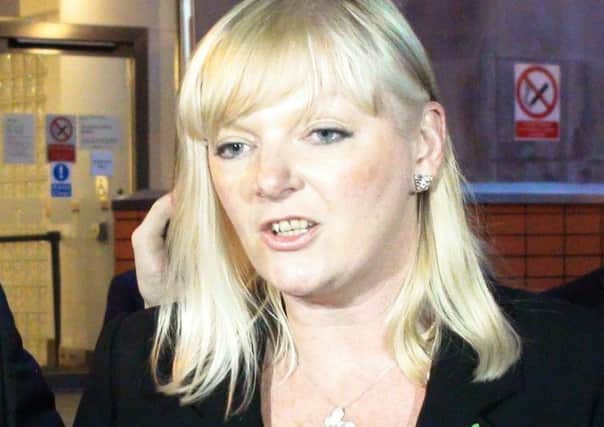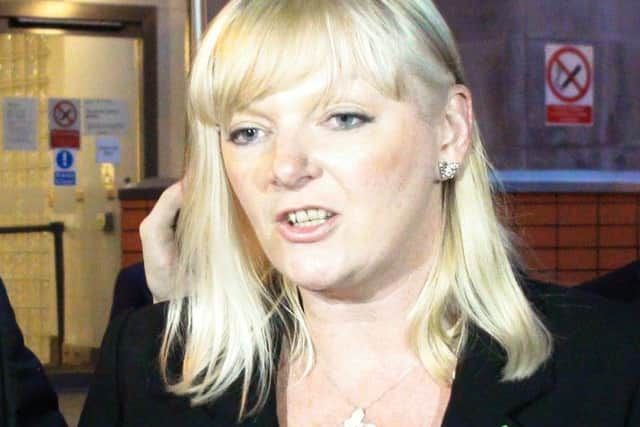Murdered teenager’s mother calls for action on male violence


Julie Warren-Sykes’ daughter Samantha was 18 when she was stabbed to death in Eastmoor, Wakefield by Ahmad Otak, an asylum seeker from Afghanistan.
Otak, a controlling and violent man who was later jailed for 34 years, also killed Kimberley Frank, 17, who was the sister of his ex-girlfriend.
Advertisement
Hide AdAdvertisement
Hide AdHe was angry when his former girlfriend, Elisa Frank, refused to take him back.


Three years on Mrs Warren-Sykes has spoken out about male violence in support of the first-ever database of women killed by men.
The aim is to track and analyse fatal male violence against women so that the causes can be better understood and prevented.
Campaigners are hoping the database will prompt action by the Government and encourage communities to discuss domestic violence and how to prevent it.
Advertisement
Hide AdAdvertisement
Hide AdMrs Warren-Sykes said she hoped the database would send a “very powerful message to the people who can influence change”.
She said women and girls were being failed by society as their voices were not heard.
Mrs Warren-Sykes said Otak had displayed violent tendencies before his fatal attack but no-one had confronted him about his behaviour which she found “astounding.”
Young women who suffered domestic violence were sometimes too ashamed to seek help while those who did come forward might be ignored, she added.
Advertisement
Hide AdAdvertisement
Hide AdThe online Femicide Census, which is being launched today, already contains the details of 694 women who were killed by men from 2009 to 2013 in England.
The deaths were compiled mainly from press cuttings by Huddersfield-born campaigner Karen Ingala Smith, chief executive of the charity nia.
She said: “I started counting dead women back in January 2012, when in the first three days of the year, eight women were killed by men in the UK alone.
“If we don’t name man’s fatal violence against women and don’t reveal its extent and the various forms it can take, we will never be capable of a thorough enough analysis to reduce or end it.
Advertisement
Hide AdAdvertisement
Hide Ad“If the bigger picture is revealed, people can begin to see the connections across the spectrum of men’s violence against women. The Femicide Census is an important step forward.”
The census is backed by Polly Neate, chief executive of Women’s Aid, who said it was important to understand what happened in the women’s lives before their deaths such as reports of domestic violence and whether the warning signs were picked up.
“We are launching the Femicide Census to identify common themes so that we can learn from them, and so that we can reduce deaths by working with all relevant agencies and professionals to better protect women.”
Legal firm Freshfields Bruckhaus Deringer also backed the project.
Advertisement
Hide AdAdvertisement
Hide AdAvril Martindale, a partner at the firm, said: “The statistics are shocking. That’s why, as part of our pro bono programme, we chose to support Women’s Aid and Karen Ingala Smith to create this census. Documenting the victims means knowledge. Increased knowledge means more can be done to stop violence against women.”
For further information go to the website www.femicidecensus.org.uk